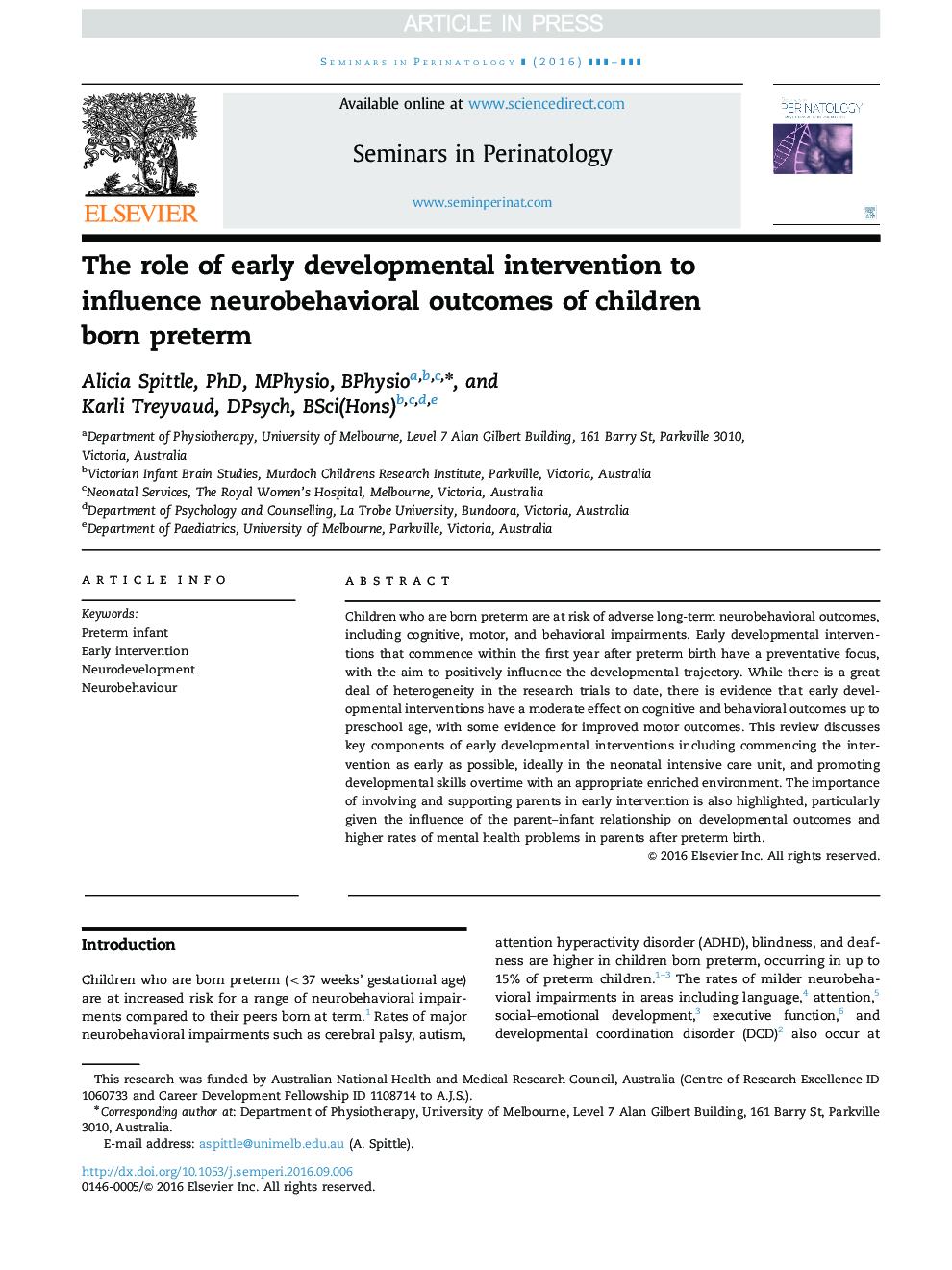| Article ID | Journal | Published Year | Pages | File Type |
|---|---|---|---|---|
| 8768627 | Seminars in Perinatology | 2016 | 7 Pages |
Abstract
Children who are born preterm are at risk of adverse long-term neurobehavioral outcomes, including cognitive, motor, and behavioral impairments. Early developmental interventions that commence within the first year after preterm birth have a preventative focus, with the aim to positively influence the developmental trajectory. While there is a great deal of heterogeneity in the research trials to date, there is evidence that early developmental interventions have a moderate effect on cognitive and behavioral outcomes up to preschool age, with some evidence for improved motor outcomes. This review discusses key components of early developmental interventions including commencing the intervention as early as possible, ideally in the neonatal intensive care unit, and promoting developmental skills overtime with an appropriate enriched environment. The importance of involving and supporting parents in early intervention is also highlighted, particularly given the influence of the parent-infant relationship on developmental outcomes and higher rates of mental health problems in parents after preterm birth.
Related Topics
Health Sciences
Medicine and Dentistry
Medicine and Dentistry (General)
Authors
Alicia PhD, MPhysio, BPhysio, Karli DPsych, BSci(Hons),
